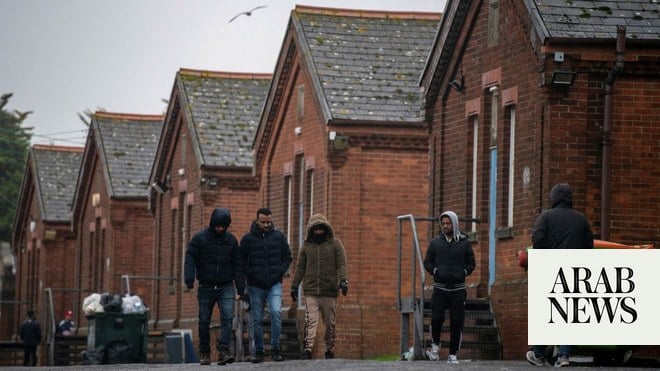
A trafficked woman who asked a judge for the right to work as a cleaner has won a landmark victory in the high court.
The ruling on Friday paves the way for tens of thousands who are denied the right to work by the Home Office to have their requests to take up jobs considered.
Asylum seekers and victims of trafficking are generally denied the right to work by the Home Office. Many wait several years for their cases to be determined. There is a record backlog of 60,548 people waiting for an initial decision on their asylum claim, with 76% of people waiting more than six months for a decision.
The trafficking victim, 35, was brought to the UK on 31 December 2017. After escaping from her traffickers and approaching the Home Office for protection the Home Office locked her up in an immigration detention centre and said there were no reasonable grounds that she was a victim of trafficking.
She has been diagnosed with PTSD, severe depressive disorder, generalised anxiety disorder and panic disorder.
A year later, officials reversed this decision. She was offered a job as a cleaner. In May 2019, and again in January 2020, the Home Office refused her the right to work.
She was granted refugee status on 5 October and given a work permit on 13 October.
In his ruling on Friday, Mr Justice Bourne considered the wider issues about the right to work for asylum seekers and victims of trafficking.
He found that the lack of reference to discretion to grant permission to work in the Home Office guidance created a real risk that requests for work may not be properly considered.
He said: “The limitation makes it much harder and in many cases impossible for an individual to obtain paid work. It may prevent them from working at all thereby exposing them to a risk of isolation and affecting their self-esteem.”
Both asylum seekers and victims of trafficking have expressed frustration at being barred from working when they are fit and able to do so.
In theory, those with specific skills which are on the Home Office’s shortage occupation list (SOL) have the right to request work if the Home Office has not decided their initial claim after a year. Skills on the list include ballet dancer, high-integrity pipe welders, Gaelic teachers and nuclear scientists. These professions account for about 1% of jobs in the labour market.
In practice, it is not known how many people, even if their skills are on SOL, are granted the right to work by the Home Office. In September 2019, the Home Office responded to a freedom of information request from the Guardian on this issue, saying: “Our electronic case working systems do not record the information you have requested.”
The judge ruled that the Home Office’s permission to work policy was unlawful and needed to be amended as officials have discretion to depart from the immigration rules and grant permission to work to those whose skills are not on the shortage occupation list.
Sulaiha Ali, of Duncan Lewis solicitors, who represented the woman, welcomed the ruling: “Providing asylum seekers with the right to work while their claims are pending gives them a route out of poverty and destitution and an opportunity to restore their dignity and self-esteem by enabling them to provide for themselves and their families.
“It is also critical to the psychological and social recovery of survivors of trafficking and helps to protect them from being subject to further exploitation.”
A Home Office spokesperson said: “The court has upheld our right to work policy as lawful and that the claimant was not discriminated against in this case. We note, however, the ruling with regards to the guidance given to caseworkers, which we will consider carefully, including whether to appeal further.
“We are fixing our broken asylum system to make it firm and fair. We will seek to stop abuse of the system while ensuring it is compassionate towards those who need our help, welcoming people through safe and legal routes.”












